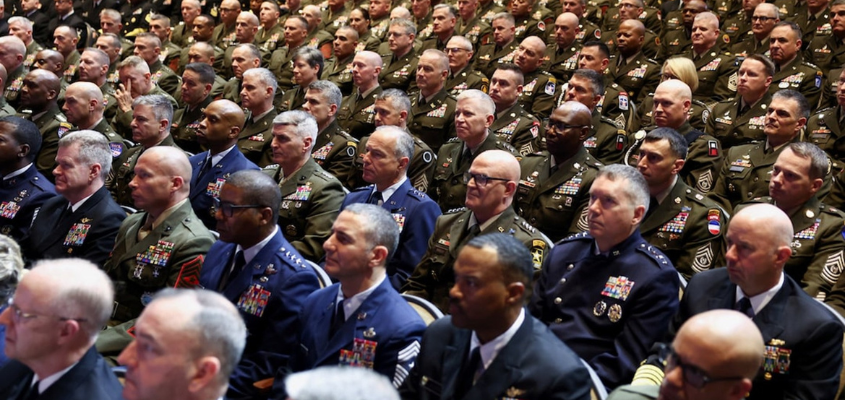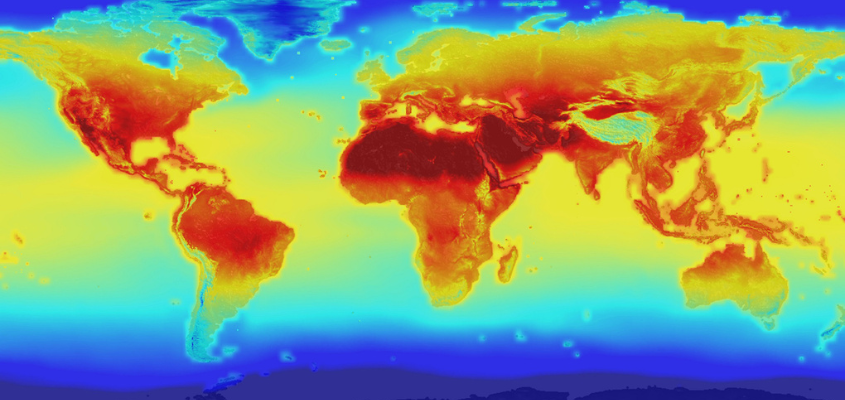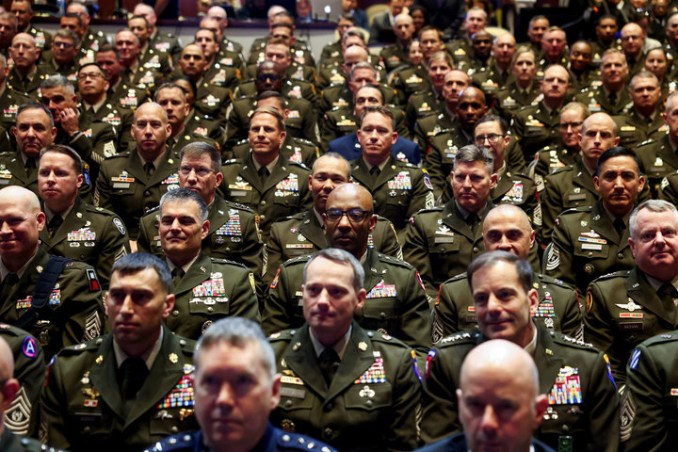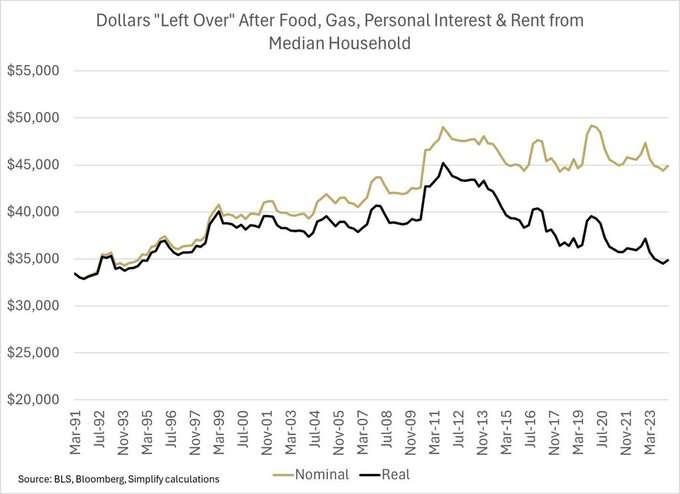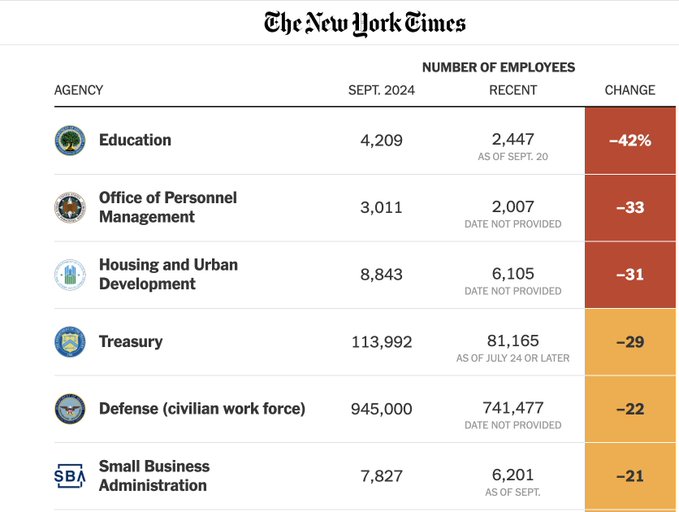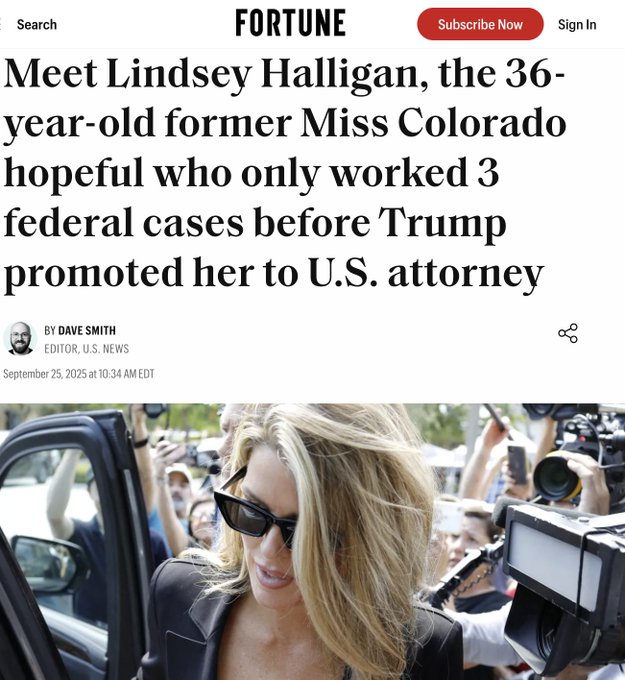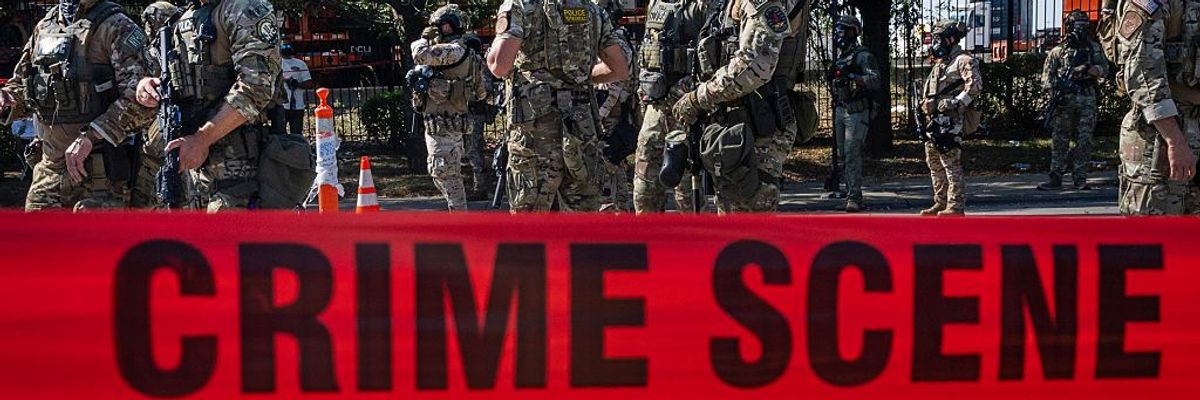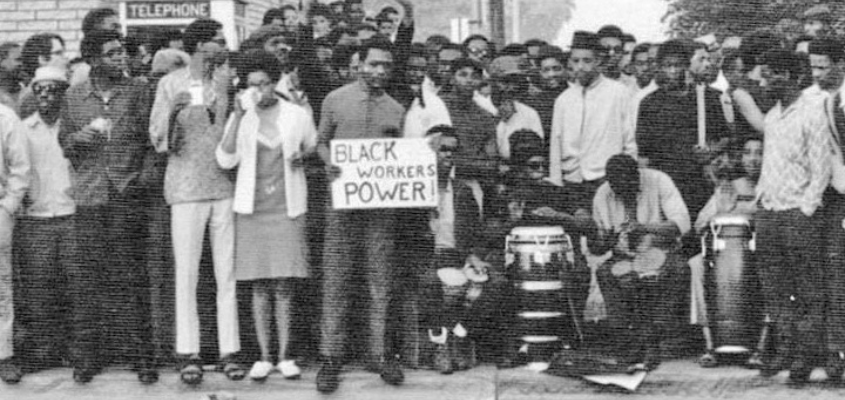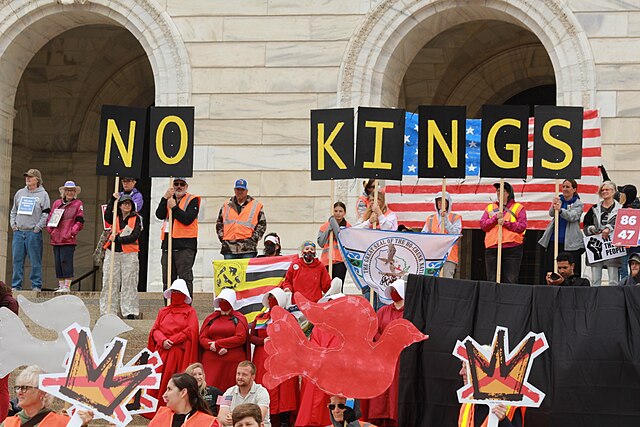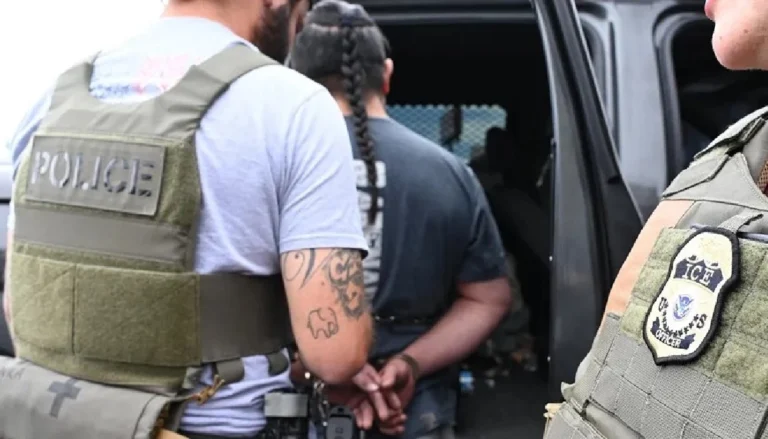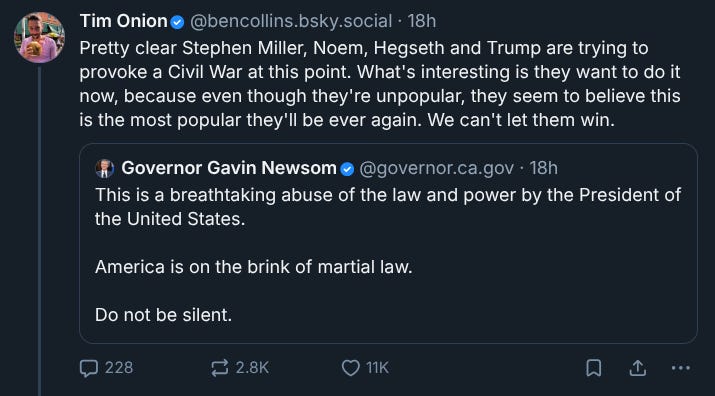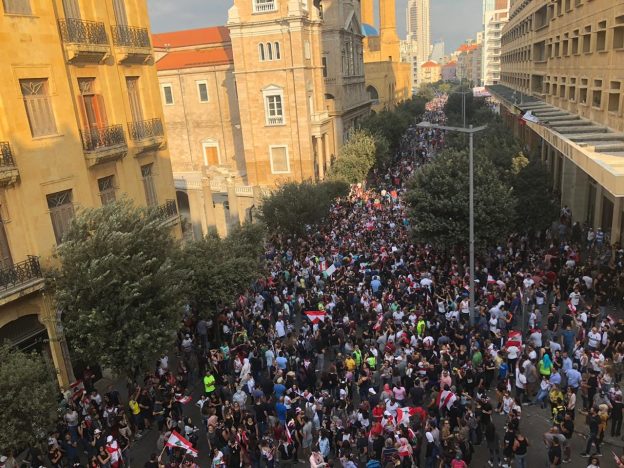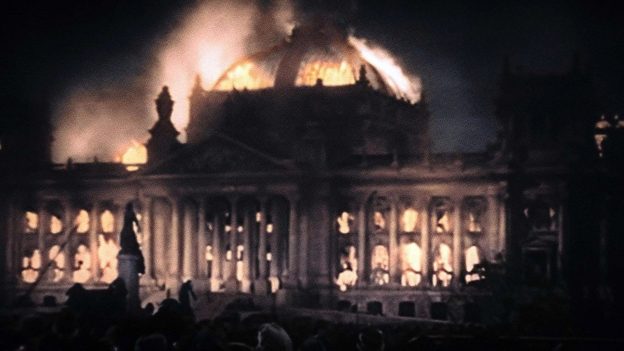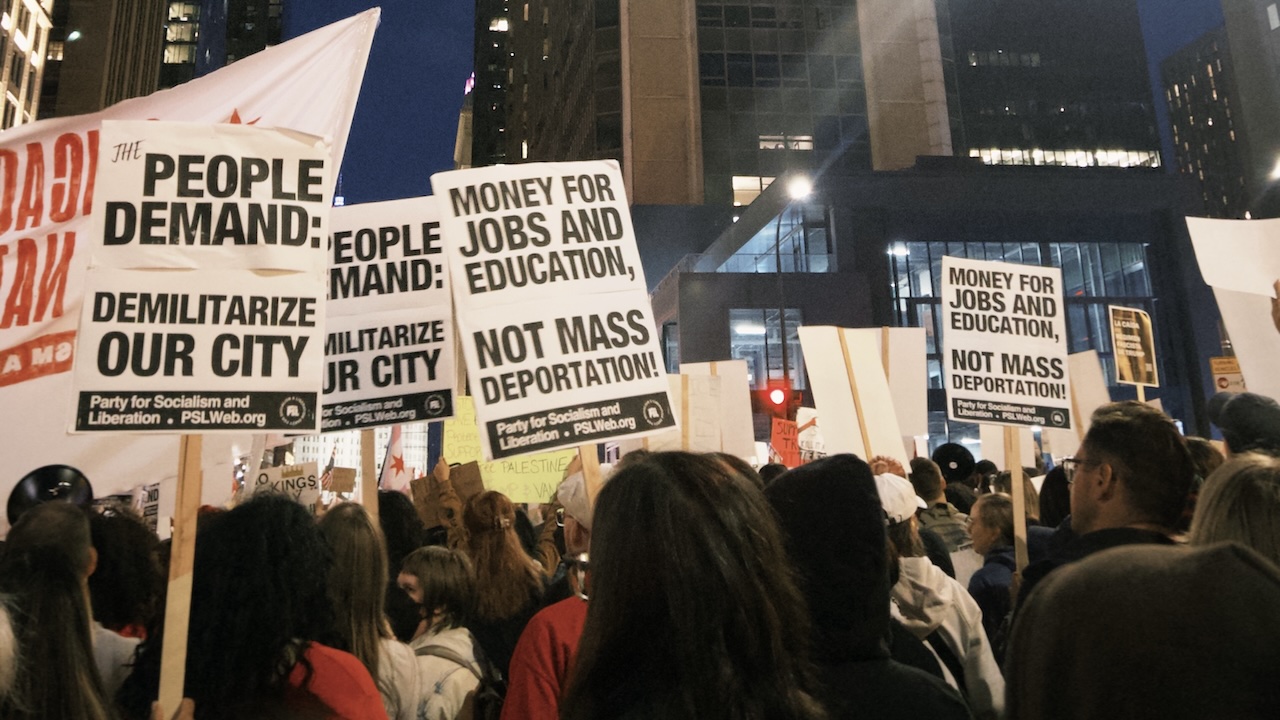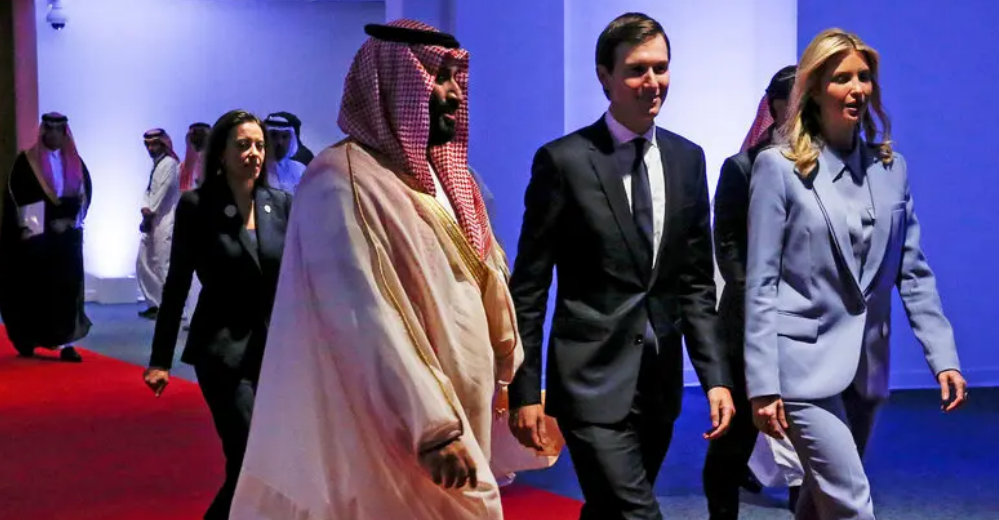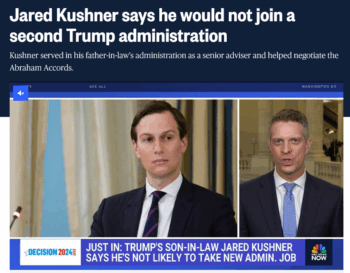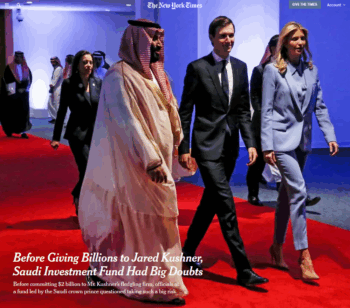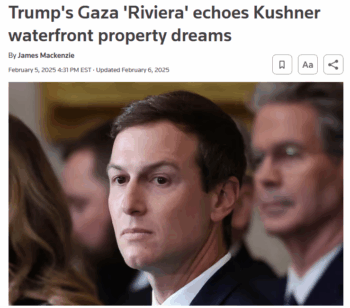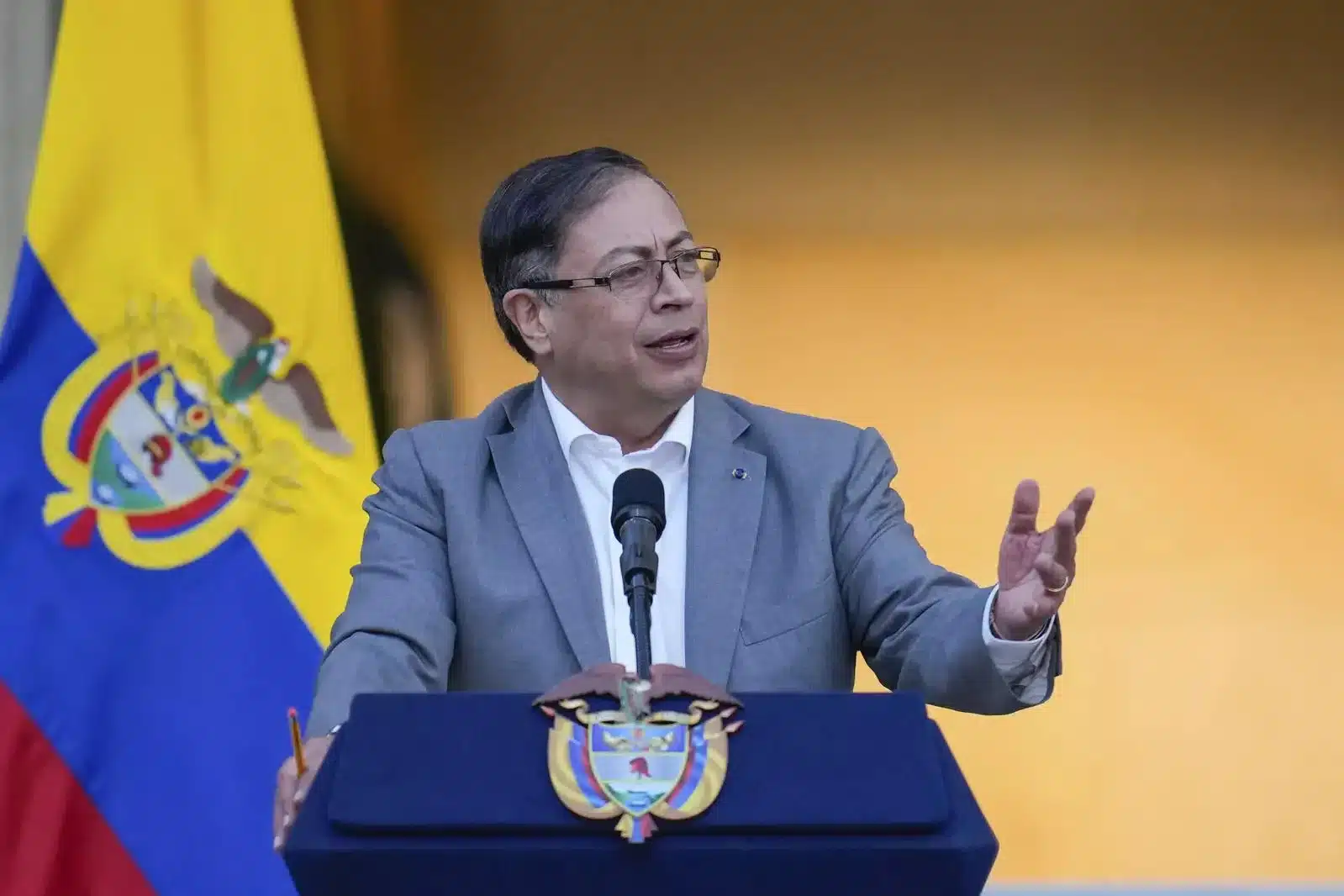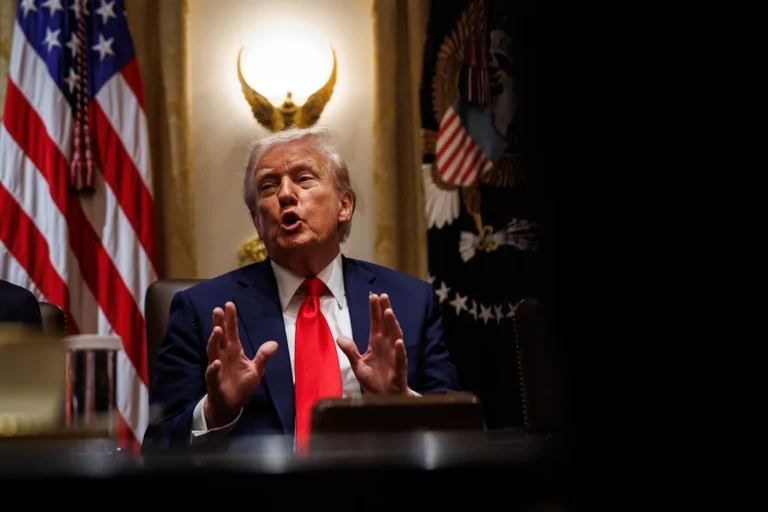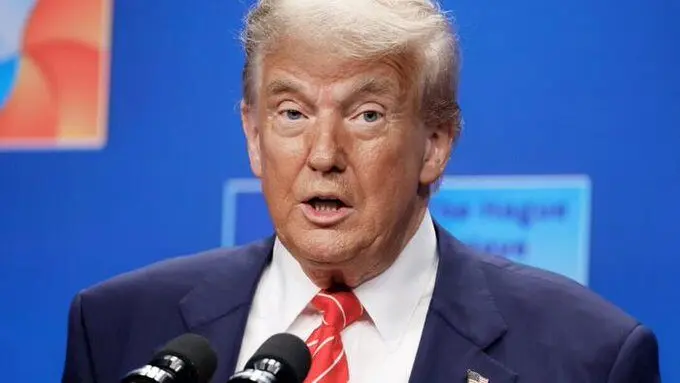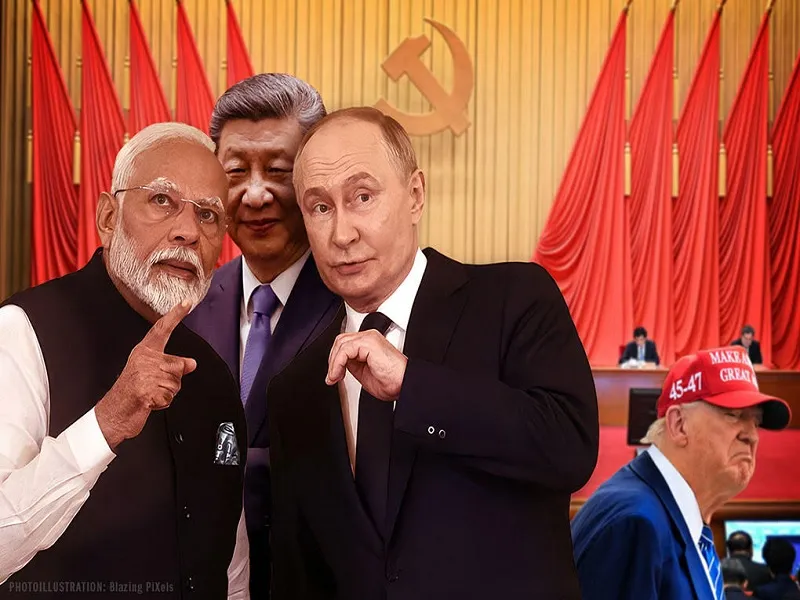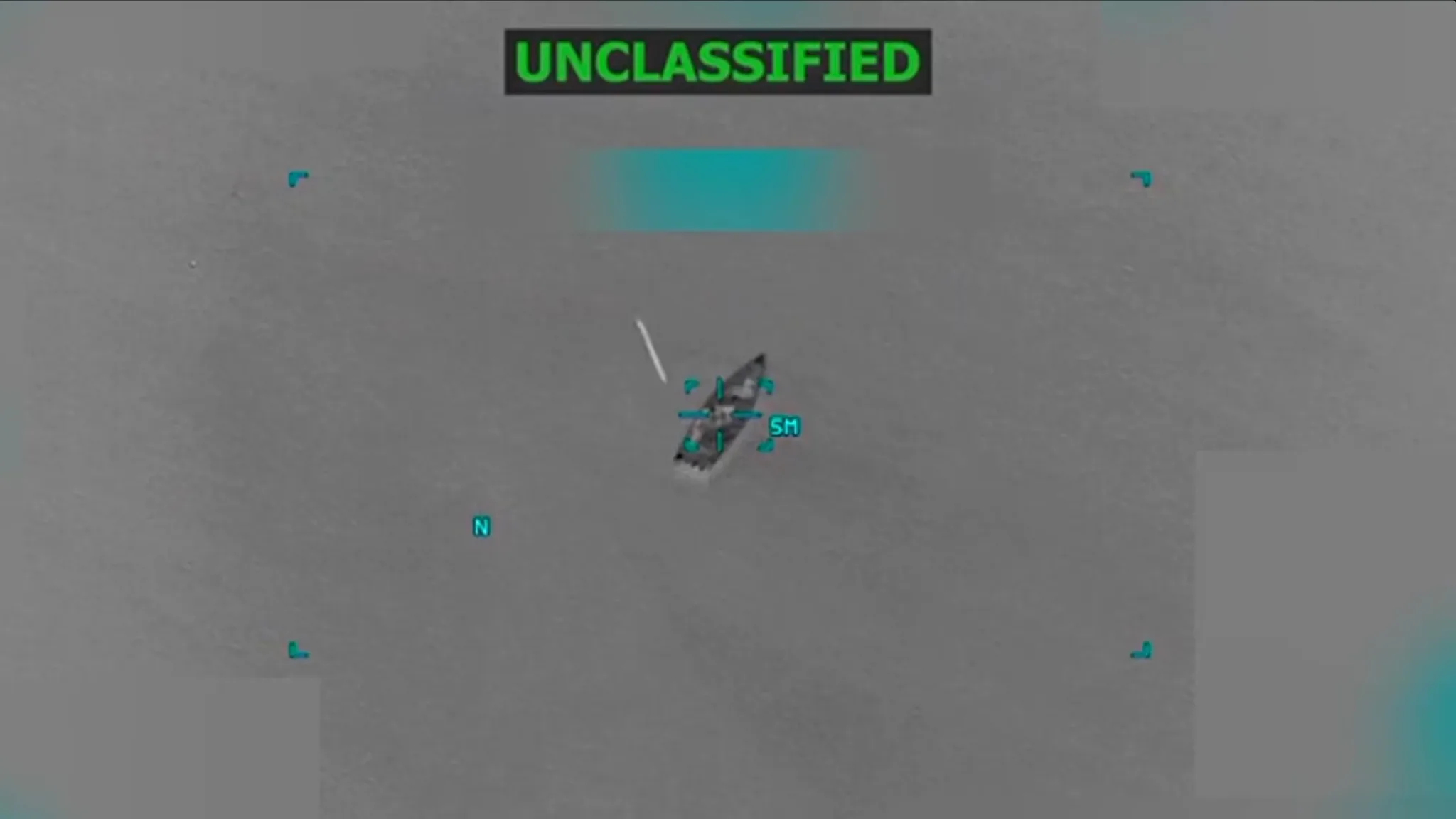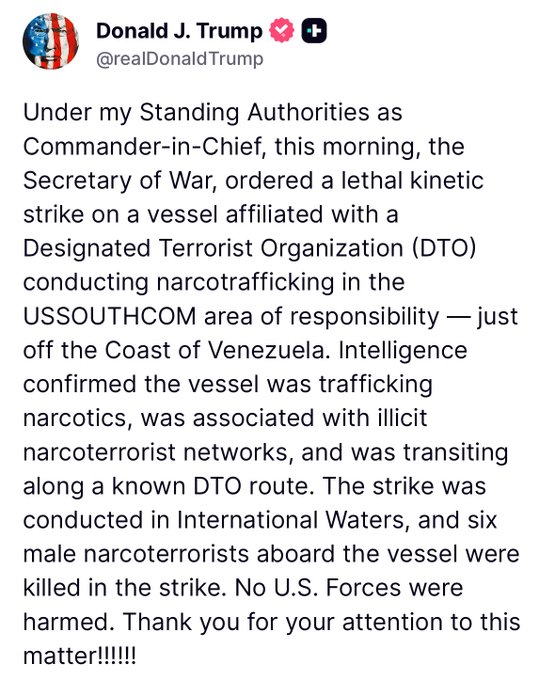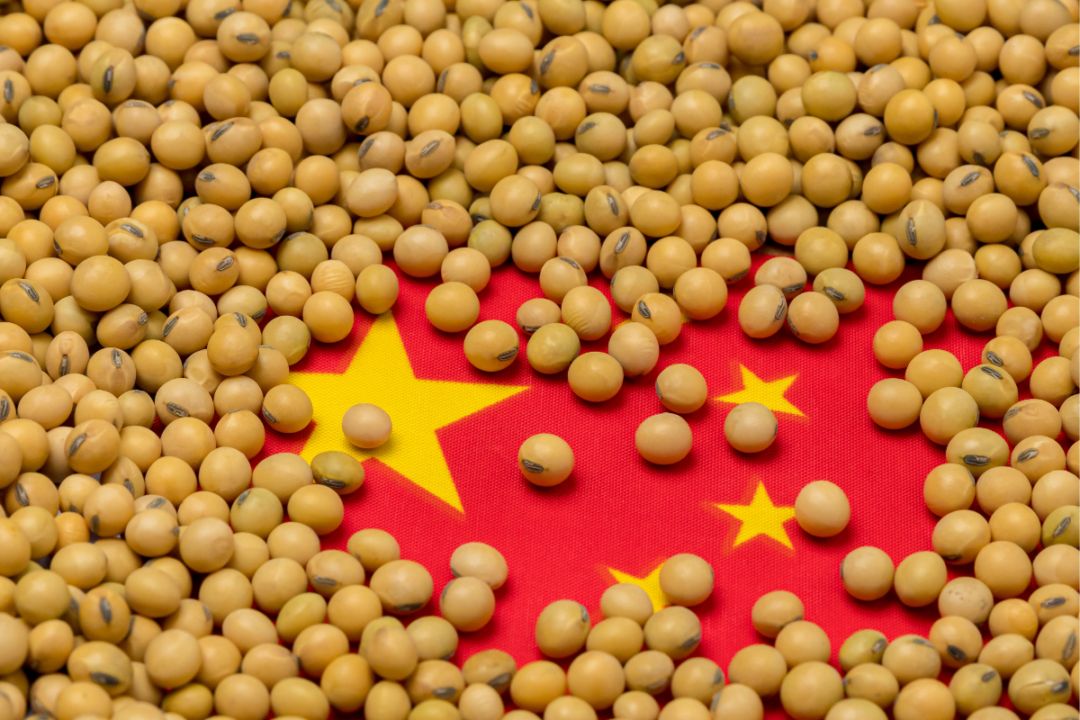Nobel committee decides on peace prize winner, experts agree 'not Trump'
The US president has contributed billions of dollars to Israel’s genocide in Gaza, and directly killed hundreds of civilians in a brutal war on Yemen earlier this year
News Desk
OCT 9, 2025

A protester holds a sign depicting Trump on a fake Nobel medal, outside the US consulate in Tel Aviv. (Photo credit: Reuters)
The Norwegian Nobel Committee has announced that it has already finalized a choice for the recipient of its renowned peace prize, which experts say is unlikely to be US President Donald Trump.
“The last meeting of the Nobel Committee took place on Monday,” a spokesman, Erik Aasheim, told AFP.
“The final touches were made on Monday, but we never disclose when the Nobel Committee makes its decision.” There will be a laureate this year, he confirmed, responding to speculation that the prize may not be awarded due to tense geopolitical crises.
The committee has not scheduled any more meetings before 10 October, when the name will be announced at 12:00 pm.
Trump has repeatedly hailed himself as the rightful recipient of the Nobel Peace Prize. The US president recently said it would be an “insult” if he is not selected. He has reportedly even called Norwegian officials to discuss the prize.
However, historian and Nobel Prize specialist Asle Sveen said the newly announced ceasefire deal in Gaza “has absolutely no impact” on the choice, particularly because “the Nobel Committee has already made its decision.”
“Trump will not win the prize this year. I’m 100 percent certain,” he added.
Sveen also pointed to the “free rein” Trump has given Israel to bombard Gaza, as well as the massive amounts of military support.
Other experts, including the director of the Peace Research Institute Oslo, Nina Graeger, have also expressed doubt that Trump could win the prize.
“He has withdrawn the US from the World Health Organization [WHO] and from the Paris Accord on climate, he has initiated a trade war on old friends and allies. That is not exactly what we think about when we think about a peaceful president or someone who really is interested in promoting peace,” Graeger told Reuters last month.
Trump came into office this year framing himself as the ‘peace president’ and ender of wars.
Despite this, he launched a brutal war on Yemen in March that killed hundreds of civilians. Throughout the year, he provided Israel with billions in military aid as it continued its genocide of Palestinians in Gaza.
He also ordered a massive US bunker-buster attack on Iranian nuclear facilities in June, in support of Israel’s illegal war on Iran. During his first term years ago, Trump illegally assassinated Iranian Quds Force commander Qassem Soleimani, risking a widespread regional escalation.
The US president has praised himself for mediating an end to the India–Pakistan conflict and facilitating talks between Armenia and Azerbaijan. He has also long vowed that he would be the one to end the war in Gaza.
He has also vowed to end the Russia–Ukraine war, despite recently escalating the situation by unveiling weapons deliveries to Kiev and imposing harsh tariffs on Moscow’s energy partners.
Ukrainian President Volodymyr Zelensky signaled on 9 October that Ukraine will nominate Trump for the prize if he sends Kiev US Tomahawk missiles.
“During our most recent meeting, I didn’t hear a ‘no.’ What I did hear was that work will continue at the technical level and that this possibility will be considered,” Zelensky said, adding that the missiles would “sober” Russia up and bring them back to negotiations.
“The plan for ending the war won’t be easy, but it is certainly the way forward. And if Trump gives the world – above all, the Ukrainian people – the chance for such a ceasefire, then yes, he should be nominated for the Nobel Peace Prize,” he added. “We will nominate him on behalf of Ukraine.”
Trump said on Monday he had “sort of” made a decision on whether to send the missiles or not.
https://thecradle.co/articles/nobel-com ... -not-trump
******
Ten Reasons Why Trump Should Never Be Awarded the Nobel Peace Prize
Posted on October 10, 2025 by Yves Smith
Yves here. As many know or soon will know, the winner of the 2025 Nobel Peace Prize will be announced on Friday. Trump’s embarrassing personal lobbying for it alone should be disqualifying. The article below lists some concrete grounds as to why the Nobel committee should reject Trump’s entreaties. It is disappointing that the article does not address how Trump’s particularly claims regarding achieving particular peace settlement are false or at best, grossly exaggerated. For instance, Trump did not negotiate the de-escalation between Pakistan and India over their recent attacks on each other; Modi was allegedly infuriated by Trump trying to take credit. Similarly, as any reader of the press in Suotheast Asia will know, peace has not been achieved between Thailand and Cambodia. Skirmishes continue, the underlying dispute is unresolved, and the US is not in the picture.
And let’s not get started on Trump actively supporting Israel’s genocide in Gaza. It is truly sick that it was Netanyahu who nominated Trump for the Peace Prize. The fact that Trump could not find a more legitimate advocate speaks volumes.
So if Trump manages to win, the bestowing of the award would not be a testament to his peacemaking but to his power, specifically EU members pressuring the committee to give Trump the prize so as to curry favor because Putin. And as many, including members of the commentariat, have observed, if Trump wins, it will complete the discrediting of the peace prize that started when Obama was the pick.
My vote goes to the members of the Sumud flotilla.
We’ll provide some updates after the announcement.
Update: 8:30AM EDT. MSM schadenfreude:
Trump loses Nobel Peace Prize he shamelessly campaigned for https://t.co/b4kJB9qb1n
— TIME (@TIME) October 10, 2025
And substantive takes:
Why give the Nobel Peace Prize to an opposition leader who applauds US pressure against her country when the US Navy is preparing for an attack on Venezuela?
– Is the logic that democracy delivers peace, and the US military delivers democracy through war?
— Glenn Diesen (@Glenn_Diesen) October 10, 2025
***
What has Maria Corina Machado done to deserve the Nobel Peace Prize?
She’s accepted US taxpayer money to fund anti-gov’t NGOs, plotted coups, and agitated for direct military intervention in Venezuela to achieve regime change.
Does the Nobel Committee have any legitimacy?
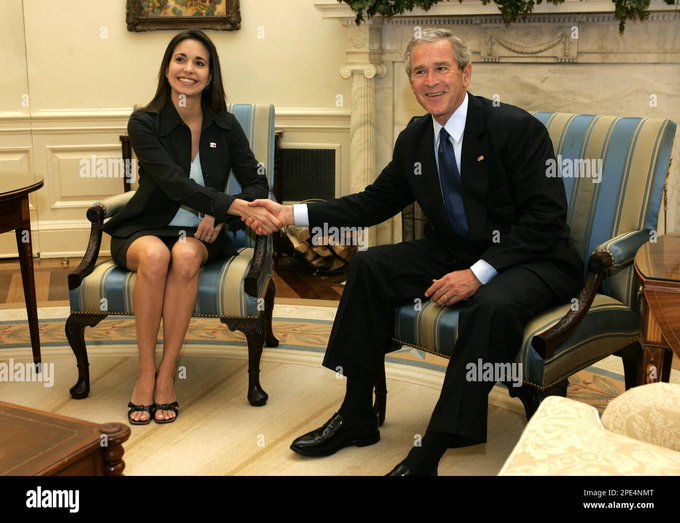
— Anya Parampil (@anyaparampil) October 10, 2025
Venezuela’s

election loser Maria Corina Machado has won the Nobel Peace Prize:
‘If we win, we will move the Venezuelan embassy to Jerusalem to support Israel.’
Like many other US-backed Latin American politicians, her policies are copy & paste support for Israel, support for… pic.twitter.com/0UXBVIhIhe
— Afshin Rattansi (@afshinrattansi) October 10, 2025
By Clarence Lusane. Originally published at TomDispatch
Who doesn’t know that President Donald Trump desperately wants a Nobel Peace Prize and said bitterly, “They will never give me a Nobel Peace Prize. It’s too bad. I deserve it, but they will never give it to me”?
And for once, he’s right. He won’t get one, but wrong, of course, that he deserves it. Actually, there are way more than 10 reasons why he doesn’t deserve such a prize, but as 10 is such a nice round number, let me use it.
As a political scientist who focuses on human rights, global racial justice, and social movements, I’ve given considerable thought to and conducted research on the Nobel Peace Prize. I once taught a course on the history and politics of that prize while a faculty member at American University’s School of International Service. Last year, I even spent time in Oslo at both the Nobel Peace Center museum and the Norwegian Nobel Institute, which houses many of the Nobel Peace Prize Committee’s documents, including, for example, original nomination letters that can be viewed and studied.
I was there doing research on the 1964 prize awarded to Martin Luther King Jr., and I read several of the original letters sent to the Committee nominating him. His main nomination came from the American Friends Service Committee (AFSC), which sent a letter dated January 31, 1963, that arrived after the January deadline for that year. His nomination was, however, carried over to 1964 and then he won.
As it turns out, I fall into one of the categories of those who can officially make such a nomination. They include members of “parliamentary assemblies” (or the U.S. Congress), previous Nobel Peace Prize Laureates like 17-year-old Malala Yousafzai or former Vice President Al Gore, directors of peace research institutes and foreign policy institutes, members of international courts, members of the Norwegian Nobel Peace Prize Committee, and (relevant to me) university professors.
Although the Committee has never explicitly stated that such a thing is possible, I’m going to assume that I can also make an “un-nomination.” In fact, believe it or not, while there were many letters of support for Dr. King’s nomination, there were also letters asking the Committee to deny him the prize, even if most of them came from individuals ineligible to make (or unmake) a nomination.
And let me just say: I can think of no one more deserving of being un-nominated for a Nobel Peace Prize than President Donald Trump. His record of authoritarian and antidemocratic rule grows more dangerous and harmful by the day, not just for the United States but for the entire global community. And yet he has indeed been nominated by Republican sycophants in Congress who seek his favor, and global strongmen, including Gabon’s President Brice Oligui Nguema, who came to power thanks to a military coup, and Azerbaijan’s Ilham Aliyev, who has been that country’s president for 22 years. They all understand that such recommendations appeal to his need for adulation and blunt any criticisms he may have of their own behavior.
The Nobel Committee does not, in fact, release information about each year’s determination, including all the individuals or groups nominated, until 50 years later, so the only way Trump and the world would know that Israeli President Benjamin Netanyahu, Cambodian Prime Minister Hun Manet, and others have indeed nominated him is if they publicly stated it or told him so.
Autocracy, Racism, and Lawlessness Are Not Qualifications
The award normally focuses on a nominee’s work in the previous year, which means Trump’s “peace” efforts during his first term and his time out of office won’t be considered for next year’s award. So, let’s examine his first eight months in office in 2025 and ask a basic question: What has Trump done so far this year to not deserve the award?
First, within hours of being back in office, the “peace” president pardoned and commuted the prison sentences of 1,500 insurrectionists who had rioted on his behalf on January 6, 2021. (Actually, those are 1,500 reasons for no Nobel Peace Prize right there!) Hundreds of those individuals violently attacked police officers with the goal of stopping the peaceful transfer of power to the legitimately elected Joe Biden. Rather than condemn their actions, Trump rewarded their (and his) lawlessness.
Second, in his immoral and racialized campaign against undocumented immigrants who, he claims, are “poisoning the blood of the country,” his administration has unlawfully kidnapped individuals off American streets and renditioned them to horrific gulags in El Salvador and elsewhere. Some had committed no crimes and were legally in the United States or even U.S. citizens.
Third, he shut down the United States Agency for International Development (USAID). That agency, founded in 1961, had spent decades providing humanitarian assistance to millions of people around the world. As Oxfam noted, with the elimination of USAID, “At least 23 million children stand to lose access to education, and as many as 95 million people would lose access to basic healthcare, potentially leading to more than 3 million preventable deaths per year.”
Fourth, he has deployed staff from Immigration and Customs Enforcement (ICE), as well as the National Guard and other troops in Los Angeles, Washington, D. C., Chicago, and soon, it seems, to Memphis, Tennessee, and Portland, Oregon (supposedly to protect Immigration and Customs Enforcement facilities there “under siege from attack by Antifa, and other domestic terrorists”). In Los Angeles, he claimed that the city was also “under siege” by people protesting his immigration raids. In fact, it was the inhumane and violent actions of ICE under Trump’s orders that sparked resistance in Los Angeles. In Washington, he falsely and repeatedly stated that he was sending in troops to control widespread crime. That canard was cover for him to spread his anti-immigrant campaign to another “sanctuary city,” and to target the most vulnerable people there like the unhoused and scooter delivery riders. (A Washington judge did at least recently block him from speedy deportations of undocumented immigrants.)
Fifth, signaling his desire for a new imperialist era, he threatened to seize Canada, Greenland, and the Panama Canal. CNN identified at least nine lies of his as to why Canada should become this country’s 51st state, including that its citizens like the idea (they don’t); that it doesn’t allow U.S. banks to operate there (it does); and that it doesn’t “take” U.S. agricultural products (it’s second only to Mexico in purchasing such products). Trump not only declared that he wanted Greenland for “security” purposes but didn’t rule out using military force to get it. Mind you, Greenland is a self-governing territory of Denmark whose people and government have no interest whatsoever in becoming part of the U.S. Though built by the United States, the Panama Canal was ceded to Panama in a 1977 treaty signed by President Jimmy Carter and ratified by the Senate. Trump claims that the United States is not getting fair market treatment for its use. However, as one expert on the canal noted, Trump is insisting on preferential treatment and promising to take it back if he doesn’t get his way.
Sixth, in a brazen abuse of power, he demanded that Brazil stop the prosecution of his ally there, former President Jair Bolsonaro. Like Trump in 2021, Bolsonaro and his followers were unsuccessful in their violent attempt to stop a transition of power to then-elected President Luiz Inácio Lula da Silva after Bolsonaro legitimately lost the 2022 election. Trump has called the trial a “witch hunt” and said he would impose a 50% tariff on Brazilian imports unless it was stopped and Bolsonaro freed.
Seventh, in another of his unconstitutional executive orders, he threatened two U.S. professors with legal penalties for working with or writing in support of the International Criminal Court (ICC). The ICC (of which the United States is not a member) prosecutes war crimes, crimes against humanity, and genocide, all of which have no statutes of limitation. Trump was rebuffed by two federal judges who concluded that he was violating the First Amendment right to free speech by stating that he would “impose tangible and significant consequences” on anyone supporting the ICC. It has evidently particularly upset him that the ICC has issued an arrest warrant for his partner in crime in the war on Gaza, Israeli Prime Minister Benjamin Netanyahu. About a dozen countries have stated that they would honor the warrant.
Eighth, Trump’s June bombing of three nuclear sites in Iran took place under distinctly dubious legal authority. That both lawmakers and scholars can’t even agree on whether the president flaunted the law or not suggests the carelessness of his actions when it came to legal procedures involving war. And despite Trump’s boast that he “completely and fully obliterated” Iran’s nuclear program, reports from his own intelligence agencies suggest that the program was set back only a few months. Apparently embarrassed by the truth, War Department Secretary Pete Hegseth fired Lieutenant General Jeffrey Kruse, who headed the U.S. Defense Intelligence Agency that reported on the botched airstrikes.
Ninth, he withdrew the United States from critical international bodies, including the World Health Organization and UNESCO, as well as less well-known organizations like the Council of Europe’s European Commission against Racism and Intolerance (ECRI) that works with 46 European governments and civil society organizations across the region to address issues of discrimination. I admit that the last one is a bit personal for me. From 2022 to 2025, I was the U.S.-appointed “independent expert” to that very commission and attended its meetings in Strasbourg, France. My appointment was approved by then-Secretary of State Antony Blinken and the Council of Europe. In January, I was informed that Trump was withdrawing the U.S. from its “observer” status on the commission because ECRI was not aligned with the values of the incoming administration. Sadly, that part was all too true.
Tenth, he is complicit in the genocide and famine taking place in Gaza. While his claims of ending seven wars are dubious at best, in the one conflict where he could most decisively have intervened to bring closure to it, he’s done anything but. His unholy alliance with Israeli Prime Minister Netanyahu has meant a lot of performative concern about starvation and the tens of thousands of deaths in Gaza along with an unending supply of weapons for Israel. His insensitivity to the suffering of the people in Gaza has only been compounded by his disturbing desire to cleanse the area of Palestinians and develop what he’s called a “Riviera of the Middle East” there.
And mind you, I won’t even count President Trump’s “pathetic” groveling campaign for the Nobel Peace Prize as one of the reasons he shouldn’t get it. That seems almost self-evident. It reminds me of comedian Steven Wright’s joke: “I’d kill for a Nobel Peace Prize.” It’s impossible to imagine Nelson Mandela, Jimmy Carter, or Martin Luther King Jr. calling officials in Norway and begging for the prize as Trump recently did; or, for that matter, using his platform at the United Nations to falsely claim that “everyone says I should get the Nobel Peace Prize.” And mind you, that ludicrous claim came only weeks after his unlawful killing of multiple individuals with military strikes in the international waters of the Caribbean without due process or any legal recourse, not to speak of changing the name of the Department of Defense to the Department of War. “Everyone,” of course, meant almost nobody. A Washington Post-Ipsos poll found that 76% of Americans don’t believe that he deserves the award, including 49% of Republicans.
It’s inexplicable to me why former Secretary of State Hilary Clinton would cavalierly state that she would nominate Trump, the twice-impeached, 34-count convicted felon and adjudicated sexual abuser, for the prize if he brought a ceasefire to the war in Ukraine. By now, it should be crystal clear that Trump has no interest in Ukraine’s sovereignty, which he’s denigrated repeatedly, while proving all too willing to grant concessions to the universally recognized aggressor in that conflict, Russian President Vladimir Putin. But even if he did help broker a fair peace agreement, which the entire world (except Putin) wants as soon as possible, that shouldn’t excuse his broader autocratic behavior and agenda.
Note to Trump: The Award Must Be Earned
His authoritarian push to reshape the United States and demean all its governing, social, financial, and cultural institutions is itself a threat to peace. He continues to attack a free press, bully universities, ignore judicial orders, abuse the very principle of a separation of powers, and openly seeks to rig elections in his favor. Forget for the moment the fascism, authoritarianism, patrimonialism, retribution, bigotry, corruption, greed, mendacity, and incompetence — his one character trait that should be considered most disqualifying is his cruelty. His lust for revenge and power has brought unspeakable malice and pain to undocumented immigrants, LGBTQ families, federal workers, foreign students, and any number of individuals whom he feels have challenged him.
Trump is possibly the most unethical, petty, and vengeful president in American history. Compassion and empathy simply play no role in his character or makeup. After all, at the memorial for the assassinated Charlie Kirk, moments after his widow Erika Kirk called for forgiveness and stated that “the answer to hate is not hate,” Trump said, “I hate my opponent, and I don’t want the best for them.”
The Nobel Peace Prize is awarded to “the person who has done the most or best to advance fellowship among nations, the abolition or reduction of standing armies, and the establishment and promotion of peace congresses.” He meets none of those criteria.
Let Trump continue to whine and play the victim as he manifests his doctrine of intimidation, bribes, and palling around with authoritarians. In the not-too-distant future, history will extensively document and abhor the outrages and inhumanity of the Trump era, recording it with the same disdain and dismay that now is used for the eras of slavery and segregation, or the McCarthy years. Let’s hope that the Nobel Peace Prize never becomes another institution that Trump disgraces and diminishes.
Copyright 2025 Clarence Lusane
(It is really quite impossible to disgrace the Nobel, it has lost it]s 'grace' long ago, if ever it had some. Nonetheless, a poke in the eye for Trump is always a good thing.)
******
Nobel Committee, Fearing Trump’s Wrath, Hands Peace Price To Regime Change Puppet
The President of the Unites States Donald Trump had demanded to be given the Nobel Peace Price. But following that demand would have been disastrous for the already blemished prestige of the Nobel. The government of Norway, which strongly influences the decisions of the Nobel Peace Price committee, was in a pickle:
With hours to go until the announcement of this year’s Nobel peace prize, Norwegian politicians were steeling themselves for potential repercussions to US-Norway relations if it is not awarded to Donald Trump.
…
Mr Trump has long been outspoken about his belief that he should be awarded the peace prize, an honour previously bestowed on one of his presidential predecessors, Barack Obama, in 2009 for his “extraordinary efforts to strengthen international diplomacy and cooperation between peoples”.
In July, Mr Trump reportedly called Jens Stoltenberg, Norway’s finance minister and the former Nato secretary general, to ask about the Nobel prize.
…
The newspaper columnist and analyst Harald Stanghelle speculated that retribution from Mr Trump – if it were to come – could take the form of tariffs, demands for higher Nato contributions or even declaring Norway an enemy.
After some talks behind the scenes it was decided to give the price to a different person than Trump but with the very obvious intent to also satisfy Trump by furthering a major foreign policy aim of his:
The Nobel Peace Prize was awarded Friday to Venezuelan opposition leader María Corina Machado who lives in hiding after attempting to run against President Nicolás Maduro.
Machado, 58, was recognized for keeping “the flame of democracy burning amidst a growing darkness” and “ever-expanding authoritarianism in Venezuela.”
…
She leads the Vente Venezuela opposition party, but was blocked from running as the nation’s president and expelled from office in 2014. She now lives in hiding and faces “serious threats against her life,” the Norwegian Nobel Committee said.
The Trump administration has long aimed at ousting Nicolas Maduro, the socialist leader of Venezuela. It has positioned its military assets around the country and is planing from regime change under false pretense:
Shortly after taking office, Trump declared Tren de Aragua to be a foreign terrorist organization that had “flooded the United States with deadly drugs, violent criminals, and vicious gangs.” In July, the president ordered the Pentagon to target certain Latin American drug cartels. By August, there were eight naval vessels—including destroyers, a cruiser, and a littoral-combat ship—operating in the Caribbean Sea. By September, the first of four boats had been struck, and 21 alleged drug traffickers have now been killed. Last week, the administration sent a confidential notice to Congress signaling its intent to carry out more strikes. The campaign could extend inside Venezuelan territorial waters or include drone strikes inside its land borders, defense officials told us.
…
But it is far from clear that the ties between Maduro’s government and Tren de Aragua are as extensive as the Trump administration has suggested, or that they exist at all. Ronna Risquez, author of the book El Tren De Aragua, told us there was “no evidence” that Maduro leads gang or drug-smuggling operations; an internal memo from the U.S. National Intelligence Council arrived at a similar conclusion. It’s also not clear that Venezuelan drug operations, centralized or otherwise, are significant enough to merit the country being singled out as a threat to American lives. Venezuela is not a major cocaine or fentanyl producer. And even though most of the world’s cocaine grows in neighboring Colombia, Venezuela is also not a major transit hub.
Trump’s anti-‘narco terrorist’ campaign is clearly aimed at regime change. This despite extensive offers by the Venezuelan government to allow the U.S. to profit from Venezuelan riches (archived):
Venezuelan officials, hoping to end their country’s clash with the United States, offered the Trump administration a dominant stake in Venezuela’s oil and other mineral wealth in discussions that lasted for months, according to multiple people close to the talks.
The far-reaching offer remained on the table as the Trump administration called the government of President Nicolás Maduro of Venezuela a “narco-terror cartel,” amassed warships in the Caribbean and began blowing up boats that American officials say were carrying drugs from Venezuela.
Under a deal discussed between a senior U.S. official and Mr. Maduro’s top aides, the Venezuelan strongman offered to open up all existing and future oil and gold projects to American companies, give preferential contracts to American businesses, reverse the flow of Venezuelan oil exports from China to the United States, and slash his country’s energy and mining contracts with Chinese, Iranian and Russian firms.
That offer wasn’t enough for a greedy Trump:
The Trump administration ended up rebuffing Mr. Maduro’s economic concessions and cut off diplomacy with Venezuela last week. The move effectively killed the deal, at least for now, the people close to the discussion said.
The Trump administration did away with generous offer because it is confident that its plans for regime change will achieve a total domination over Venezuela.
The new Nobel Peace Price laureate, María Corina Machado, plays a big role those plans.
Who is that lady you might ask. In July 2024 the NY Times published a friendly portrait of her (archived):
Ms. Machado, a conservative former member of the national assembly once rejected by her own colleagues, has not only corralled Venezuela’s fractious opposition behind her, but has also captivated a broad swath of the electorate with a promise for sweeping government change.
…
If the opposition wins, Mr. González, 74, will be president. But from Washington to Caracas, everyone understands that Ms. Machado is the driving force behind the movement.
…
She became a political activist in 2002, helping to found a voter rights group, Súmate, that eventually led a failed effort to recall Mr. Chávez. She was a darling of Washington — the U.S. government provided financial aid to Súmate — and became one of Mr. Chávez’s most detested adversaries.
But it wasn’t just the government that loathed her. Among colleagues in the opposition, she was often viewed as too conservative, too confrontational and too “sifrina” — Venezuelan for “snobbishly high class” — to become the movement’s leader.
She has said that the politician she most admires is Margaret Thatcher, the conservative icon known for her stubbornness and fealty to the free market. And Ms. Machado has long supported privatizing PDVSA, the state oil company, a move other opposition leaders say would put Venezuela’s most valuable resource in the hands of a few.
Machado, while on the U.S. payroll, was involved in a 2002 military coup attempt in Caracas:
Questions still surround Ms. Machado’s actions in 2002, when dissident military officers and opposition figures led a short-lived coup meant to oust Mr. Chávez. Ms. Machado was at the presidential palace during the installation of a new president, Pedro Carmona.
In the 2005 interview with The Times, Ms. Machado insisted that she and her mother were in the palace that day only to visit Mr. Carmona’s wife, a family friend — not to support the coup.
More recently, in a 2019 interview with the BBC, Ms. Machado called on “Western democracies” to understand that Mr. Maduro would only leave power “in the face of a credible, imminent and severe threat of the use of force.”
Machado even asked the Zionist war criminal Benjamin Netanyahoo for military support in a coup (edited machine translation) :
María Corina Machado asked the prime minister of Israel, Benjamin Netanyahu, a military intervention in Venezuela, through a document posted on its social network X in 2018.
…
Machado described the military intervention of “power and influence” against the Venezuelan government.
“Today sending a letter to Mauricio Macri, President of Argentina, and to Netanyahu, Prime Minister of Israel, to ask them to apply their strength and influence to advance the dismantling of the criminal regime in Venezuela, intimately linked to drug trafficking and terrorism,” she wrote.
In addition, the document points out that Machado was “convinced that the international community, according to the doctrine of the responsibility to protect, is called to give Venezuelans the support needed to generate the change,” a change of government.
Machado is still in cahoots with (and likely still payed by) the U.S. to further regime change in Venezuela (archived):
[U.S. Secretary of State] Rubio met with five opposition figures in May who secretly fled to the United States in what he called a “precise operation.” He has praised the opposition leader, María Corina Machado, whom he called by her nickname, the “Venezuelan Iron Lady,” in a tribute this year.
…
Pedro Urruchurtu, an adviser to Ms. Machado, said in an interview that the opposition had developed a plan for the first 100 hours after Mr. Maduro’s ouster that would involve a transfer of power to Edmundo González, who ran for president against Mr. Maduro last year.
…
“What we’re talking about is an operation to dismantle a criminal structure, and that includes a series of actions and tools,” Mr. Urruchurtu said, adding: “It has to be done with the use of force, because otherwise it wouldn’t be possible to defeat a regime like the one we’re facing.”
The opposition’s plans include persuading other governments to take diplomatic, financial, intelligence and law enforcement actions, he said.
To recap – the Nobel Peace Prize committee is giving the price to an opposition politician in South America who is on the payroll of the U.S. government and has been involved in previous military coups attempts in her country. Her advisor is arguing for the use force to overthrow the government. Ms. Machado’s plan is to the sell out whatever Venezuelans have to the foreign empire that pays her.
The Nobel Committee and Norway may, for now, have saved themselves from Trump’s wrath but the decision to award the price to Ms. Machado is another huge blemish to its record.
Posted by b on October 10, 2025 at 11:30 UTC | Permalink
https://www.moonofalabama.org/2025/10/f ... uppet.html
******
The Militarized Path to the Insurrection Act in the U.S.
October 9, 2025 , 3:25 pm .

National Guard members patrol near the U.S. Capitol on October 1, 2025, in Washington, D.C. (Photo: Al Drago/Getty Images)
On October 8, 2025, US President Donald Trump again left open the option of invoking the century-old Insurrection Act to circumvent court and state obstacles to National Guard troop deployments in US cities dominated by Democratic governments.
Despite strong objections from local and state officials, the president and his advisers have emphasized or reiterated the "need" to invoke the law . They have repeatedly used the term "insurrection" to describe demonstrations in cities like Portland, where protests against immigration policies have clashed with ICE (Immigration and Customs Enforcement) officers.
This discourse strategy seeks to legitimize an extreme recourse to internal militarization as a response to what is described as institutional chaos.
There is already conflicting case law: a federal judge has temporarily blocked the deployment of National Guard troops to Portland, while another court in Illinois allowed a federal deployment to Chicago to move forward.
According to presidential statements from the Oval Office, he has justified invoking the law by saying it is nothing new: "Well, it's been invoked before," Trump commented, arguing that the troops are necessary to protect federal property and personnel, as well as to reinforce a broader campaign against urban crime.
"If the governor can't do the job, we will," he added , in explicit reference to cities like Chicago, which he said had high crime rates .
Insistence on the law
On January 20, 2025, just hours after his inauguration, Trump signed an executive order declaring a national emergency on the southern border of the United States.
In that document, he instructed the Secretaries of Defense and Homeland Security to submit, within 90 days, a report on whether additional measures were needed to achieve "complete operational control" of the border with Mexico, including the possibility of invoking the Insurrection Act of 1807.
This exceptional provision was interpreted as the first step toward legally legitimizing internal militarization under the rhetoric of order and security in a country that declares itself in a state of emergency.
The Insurrection Act constitutes one of the few exceptions to the constitutional principle that prohibits the armed forces from participating in the enforcement of civilian law, a principle established by the Posse Comitatus Act of 1878.
Under ordinary circumstances, the Army and Air Force cannot act as police forces within the national territory. However, the 1807 Act grants the president the authority to deploy regular troops and the federalized National Guard when he determines that "unlawful obstructions, combinations or assemblies, or rebellion against the authority of the United States" make the enforcement of federal law by ordinary judicial means "impracticable."
In other words, the president can temporarily substitute civilian justice for military coercion if he argues that the institutional system cannot contain an internal threat.
Although this prerogative has been exercised around 30 times in the history of the United States, its use has always responded to extraordinary situations and clearly defined contexts: the Civil War in the 19th century, the strikes and labor uprisings of the 1870s and 1890s, the protection of the civil rights of African Americans during Reconstruction and the 1960s, or the suppression of the Los Angeles race riots in 1992, the last time it was invoked.
In none of these cases was it used for immigration or border security purposes, making Trump's proposal a precedent without historical or legal basis.
In fact, at the time, both Pentagon Chief Pete Hegseth and Homeland Security Secretary Kristi Noem advised against invoking the Insurrection Act, concluding that the border situation did not warrant military intervention.
Their assessment was based on official data reflecting a sustained reduction in illegal crossings, attributed more to severe asylum restrictions and pressure on Latin American governments to contain migration flows than to a real increase in threats.
However, Trump has insisted , or rather Stephen Miller has , on presenting migration as an "invasion" that threatens the integrity of the country . This deeply ideological narrative transforms a social and humanitarian phenomenon into a national security conflict.
In this way, migration is treated as a military threat.
In practice, this is a political reinterpretation of the Insurrection Act, replacing the legal concept of "rebellion" or "uprising" with that of "mass migration," distorting the original purpose of the instrument.
Ultimately, what we see is not the prudent application of an exceptional law, but rather its strategic reinvention for political purposes ; that is, it is an attempt to consolidate federal power over Democratic states, reinforce the presidential image of authority, and project a discourse of firmness toward public opinion in the face of a fabricated internal enemy.
Even in presidential action, the White House is redefining the notion of threat and expanding the scope of national defense, extending it from protection against external enemies to the containment of internal phenomena such as migration and drug trafficking. Venezuela enters this equation as a manufactured "enemy."
In short, the "migrant invasion" and the "opioid flow" are two threats that Trump deliberately links in the document , and which he uses to justify the expansion of military power.
The new military installation
This political agenda under the law that he seeks to invoke , which ostensibly seeks to "protect" US territory, actually represents a silent process of redefining the military's role in the internal life of the United States .
In a recent speech to senior Pentagon officials , Trump proposed using American cities as "training grounds" for the armed forces, an idea that alarmed some in the American political class.
Defense experts have warned about the seriousness of this precedent. Randy Manner, a retired general and former deputy chief of the National Guard Bureau, warned that using the Insurrection Act in the manner Trump is contemplating "has no real precedent."
For Manner, this is "an extremely dangerous slope, because it basically says the president can do whatever he wants." In more blunt terms, he described this scenario as "the very definition of dictatorship and fascism."
The militarization of American cities is a gradual and calculated process , with punctual deployments of the National Guard, carefully measured to test the courts' resilience, gauge public reaction, and, of course, confront the Democrats.
The starting point of this process can be traced back to the June 7 memorandum in which the White House authorized National Guard operations in Los Angeles to contain protests against ICE immigration raids.
Despite objections from Governor Gavin Newsom and local leaders, 2,000 troops were initially deployed, later increasing to 4,000 , including 700 Marines.
The protests that led to the operation had been triggered by an ICE raid in the Los Angeles textile district , an area densely populated by Latin American migrants , which ended with multiple arrests and reports of abuse.
Similar demonstrations took place in San Diego, Massachusetts, and other cities across the country. In response, Trump ordered new demonstrations in Washington, DC, Chicago, and Portland, justifying them with the argument that crime and "urban lawlessness" were out of control.
However, local officials denied that narrative. In Chicago and Portland, protests had been largely peaceful and small, with no signs of insurrection or police overreach.
This pattern reveals a carefully planned institutional escalation, as it appears that Washington, D.C., was the initial laboratory; Los Angeles, the social trial run; and Chicago and Portland, the political testing grounds.
Each deployment has further expanded the White House's scope for action and weakened states' ability to resist federal control.
This strategy seeks to reactivate the hardline Republican vote , comprised of nationalist, conservative, and religious sectors , while weakening moderate Democratic factions, forcing them to react on a terrain dominated by the narrative of order, authority, and national defense. All of this in anticipation of the 2026 midterm elections .
Behind the electoral dimension, the context is intertwined with the so-called Project 2025, a roadmap promoted by sectors of the American right that seeks to expand presidential authority and restructure the state apparatus under a centralized control framework.
On the economic front, militarization offers an additional incentive because it revitalizes funding flows to the military-industrial complex and the private security corporations orbiting the Pentagon. Each deployment brings new contracts, supplies, technology, training, and maintenance, which translates the "security crisis" into a profit opportunity.
Federal intervention does not seek to protect citizens, but rather to strengthen executive power and fuel economic interests linked to the military-industrial complex. The Trump administration invokes an "internal enemy" that extends across the hemisphere, also targeting Venezuela.
https://misionverdad.com/globalistan/el ... on-en-eeuu
When presidents assassinate
Andrew P. Napolitano
October 9, 2025 , 3:14 pm .

U.S. President Donald Trump at Joint Base Andrews, Maryland, September 26, 2025. (Photo: Joyce N. Boghosian/White House)
Over the past six weeks, President Donald Trump ordered U.S. troops to attack and destroy four speedboats in the Caribbean Sea, 1,500 miles from the United States. The president revealed that the attacks were carried out without warning, were not intended to stop, but rather to kill everyone on the boats, and were successful in their missions.
Trump has claimed his victims are "narco-terrorists" who were planning to deliver illegal drugs to willing American buyers. He apparently believes that because these people are presumably foreigners, they have no rights he should honor, and he can kill them freely. As far as we know, none of these anonymous, faceless individuals were charged or convicted of any federal crime. We don't know if any of them were Americans. But we do know that all were extrajudicially executed.
Can the president legally do this? In a word: NO. Here's the backstory.
Limit federal powers
The United States Constitution was ratified to establish federal powers and to limit them.
Congress is established to make laws and declare war. The president is established to enforce the laws Congress has made and to be commander in chief of the armed forces.
Restrictions are imposed on both. Congress may only enact legislation in the 16 discrete areas of governance articulated in the Constitution, and it may only legislate subject to all of the natural rights of the people identified and articulated in the Bill of Rights.
The president can only enforce the laws Congress has written; he cannot make his own. And he can employ the armed forces only in defense against an imminent military-style attack or to wage wars Congress has declared.
The Constitution prohibits the president from waging undeclared wars, and federal law prohibits him from using the armed forces for law enforcement purposes.
The Fifth Amendment, along with the 14th, which restricts the states, ensures that no person's life, liberty, or property may be taken away without due process of law. Because the drafters of the amendment used the word "person" instead of "citizen," the courts have consistently ruled that this due process requirement applies to all human beings.
Basically, wherever the government goes, it is subject to constitutional restrictions.
Trial in Court
Traditionally, due process means a trial. In the case of a civilian, it means a jury trial, with the full range of concomitant protections required by the Constitution.
In the case of enemy combatants, it means a fair neutral tribunal.
The court's order came in a strange and terrifying way. In 1942, four Nazi troops arrived by submarine at Amagansett Beach, New York, and exchanged their uniforms for civilian clothes. At almost the same time, four other Nazi troops arrived by submarine at Ponte Vedra Beach, Florida, and also changed into civilian clothes. The eight then dedicated themselves to their assigned task of destroying American munitions factories and infrastructure. After one of them went to the FBI, all eight were arrested.
At trial, all eight were convicted of attempted sabotage behind enemy lines, a war crime. The Supreme Court quickly returned to Washington from its summer recess and unanimously upheld the convictions. By the time the court issued its formal opinion, six of the eight had been executed. The two Americans were sentenced to life imprisonment. Their sentences were commuted five years later by President Harry Truman.
The lynchpin of all this was President Franklin D. Roosevelt's decision to appoint a lawyer and hold a trial. The Supreme Court made it clear that even unlawful enemy combatants—those not in uniform and not on a recognized battlefield—are entitled to due process; and, were it not for the trial afforded the Nazi saboteurs, it would not have allowed their executions.
This jurisprudence was essentially followed in three Supreme Court cases involving foreign nationals whom the George W. Bush administration had arrested and characterized as enemy combatants detained at the U.S. Naval Base at Guantanamo Bay, Cuba.
In times of war, U.S. troops may legally kill enemy troops engaged in violence against them. But, pursuant to these Supreme Court cases, the United Nations Charter (a treaty the United States drafted), as well as the International Covenant on Civil and Political Rights (another treaty the United States drafted), if combatants do not engage in violence, they cannot be harmed, only arrested.
All of this means that Congress has effectively declared war on the country or group from which the combatants come. That hasn't happened since December 8, 1941.
Now, back to Trump ordering the military to kill foreigners in the Caribbean.
International law provides for the detention of vessels involved in acts of violence in international waters. It also provides for the detention and search of vessels, with probable cause for search, in U.S. territorial waters.
But no law permits, and prevailing judicial precedent derived from the Constitution and federal statutes absolutely prohibits, summary killings of persons not engaged in acts of violence, on the high seas or elsewhere.
The US attorney general has reluctantly revealed the existence of a legal memo purporting to justify Trump's orders and the military's killings, but insisted the memo is classified. That's a non sequitur .
A legal memorandum can only be based on public laws enacted by Congress and interpreted by the courts. There are no secret laws, and there can be no classified justification for killing the legally innocent.
If the memorandum purports to allow the president to declare nonviolent enemy combatants on a whim and kill them, it defies 80 years of consistent jurisprudence, and its drafters and implementers have engaged in serious crimes.
Where will these extrajudicial killings be moved? To Chicago?
https://misionverdad.com/traducciones/c ... s-asesinan
Google Translator
(Can't believe I'm posting 'Da Judge' but he lays out the law, such as it is...)
*****
Is This a Horst Wessel Moment?
For several days, while Wessel lay critically wounded in a Berlin hospital, Goebbels issued daily health bulletins on his new hero. And since Ali Höhler belonged to a Communist street gang, Goebbels portrayed the gun battle as an infamous act of political terrorism. The Gauleiter wrote an emotional account of his visit to the hospital, and he quoted from the hero’s song: “Comrades shot dead by the Red front and Reaction march in spirit with our ranks!” When Horst Wessel finally died, Goebbels staged a tremendous funeral. “His song made him immortal,” Goebbels cried, and, echoing the line about the marching dead, he called out “Horst Wessel!” And the assembled Storm Troopers shouted: “Present!” Goebbels… said of the dead youth “...Come to me: I will redeem you.” Then everyone sang the “Horst Wessel Song,” which, after Goebbels had produced enough pamphlets and posters, was to become the Nazis’ official anthem. Before the Deluge, Otto Friedrich (1972)
The murder or assassination of Charlie Kirk has become an event threatening to radically reshape the political landscape, with the MAGA right exploiting Kirk’s violent death occurring at an outdoor event at a Utah university.
Immediately after Kirk’s demise a storm of controversy arose over its meaning. For most US citizens, Kirk was not a well known figure. As with other instances of political violence, the fact that attacks are growing in frequency draws more concern, more discussion than an identification with the victim.
But with the elites of the right and their media servants, Kirk was a rising star, a charismatic youth leader poised for future greatness. He was credited with bringing young people into the MAGA movement, though polls still show young people leaning more and more left. With a dysfunctional Democratic Party, his role was to herd dissatisfaction rightward, especially with college students. His death has elevated him into a martyr of the MAGA cause. He has been canonized in ruling MAGA circles.
For their most prominent political foes-- the liberal elites and their covey of pundits-- Kirk was a dangerous character, especially on social and lifestyle conversations that obsess them. They recognize that he was good at selecting lightning rod issues that challenge liberals. He was not such an easy target with centrists as Trump, since Kirk offered a self-confident, reasonable style that separated him from Trump’s bombast and arrogance.
While fear was central to his message, it was buffered by a nostalgia for an imagined earlier time when everyone got along, worshiped the same God, and basked in patriotic light. Kirk sought to hide the racism and sexism that flowed freely beneath the surface with denial and artfulness.
In short, Charlie Kirk was a MAGA con man, in a political universe filled with con artists and wannabee con artists.
In the aftermath, MAGA hucksters have manufactured a remarkable narrative that has elevated Kirk to a national status that he never earned; they have constructed an elaborate network of blame that links everything and every one who stood in opposition to MAGA to Kirk’s murder; and they have frightened easily frightened liberals into condoling Kirk’s death and attesting to his great “human” worth.
But most disgustingly, MAGA shock troops established an atmosphere so thick with fear that virtually ANYONE can be banished from status, employment, or reputation who dares challenge the sainthood of Charlie Kirk.
This demonstrates to all the unbridled power and ruthlessness of the MAGA camp.
But there is another side to this story, a chapter of equal, perhaps, more significance.
That is the role of the institutional enablers. A cornerstone of liberal democratic theory is the structural guide rails of political life supposedly established by the constitution, the body of law, the court system, the security sectors, the regulatory agencies, the educational system, and-- perhaps most importantly-- the media. These rules and institutions are hailed as barriers to abuse, corruption, and anti-democratic acts; they are alleged guarantors of universal and absolute personal rights and protections.
Their citation and their celebration are instilled early and often in the citizenry of Europe and North America. Citizens are told that living under the umbrella of these guarantees is what separates the civilized West, from the unfortunates in the rest of the world.
Curiously, they have always failed when they are most needed; they collapse before the weight of powerful forces-- the forces that they are meant to resist. The failure of the guard rails to protect outspoken or dissident voices from the wrath of university administrators, government bullies, anti-immigration thugs, or media executives at this moment is only the latest example of a long history of failure. The Alien and Sedition Acts of 1798, the systematic abridgement of the thirteenth and fourteenth Constitutional amendments after Reconstruction, the anti-Red repression after World Wars I and II are among a host of anti-democratic turning points that left the US democratic reputation tarnished and left an indelible stain on political life.
Those who speak most fervently about the virtues of our system, those who manage and govern the institutional guide rails are often the first to surrender to the challenges to free speech and open advocacy. The University presidents and administrators who turned campuses into bastions of thought conformity, the government bureaucrats who quietly watched their colleagues cast into unemployment, the union leaders who vigorously “regretted” the stripping of union rights from hundreds of thousands of government employees, and the employers-- from school boards to corporate media executives-- who fired employees who dared to speak against the ludicrous beatification of Charlie Kirk-- fall in line without a fight.
One of the US’s better writers, Dalton Trumbo, writing in 1949, called the early anti-Red hysteria of the time “The Time of the Toad”. Trumbo-- himself a top Hollywood writer who was fired, jailed, and blacklisted for his Communist Party membership-- recalled a story by Emile Zola involving a man “inuring himself against newspaper columns” by devouring a raw toad everyday “so he could face almost any newspaper with a tranquil stomach… and actually relish that which to healthy men not similarly immunized would be a lethal poison.”
Trumbo and Zola were correct to see the news media and the commentariat as administering “a lethal poison”. Their thirst for sensationalism, scandal, and vulgarity played a significant role in pushing Trump onto the political stage. Their uncritical embrace of bipartisan, imperialist foreign policy accounts for widespread national disinterest in the US’s bloody hand. They have shown themselves dutiful puppets of wealth and power. And now the owners, editors, script writers, and faces of the media are enthusiastically bending a knee to MAGA’s assault on the little independence that they have retained.
In early 1930 Germany, the Hitlerites sought to turn the death of a contemptible, minor SA leader into an affront to the entire German nation. Through Goebbels unprincipled, unscrupulous propaganda campaign, through the support of big business, military leaders, opportunist “mainstream” politicians, and a sensation-seeking media, they succeeded.
The only barriers to their further success in 1930 stood a powerful labor movement, a dominant Social Democratic Party, and a growing, popular Communist Party. Nonetheless, in the September 1930 election the Nazi party became the second largest party, gaining 95 seats in the Reichstag.
What barriers do we have?
Greg Godels
zzsblogml@gmail.com
https://zzs-blg.blogspot.com/2025/09/is ... oment.html
******
I've noticed that the npr propagandists continually make reference to Trump's "political enemies". This is incorrect, a solipsist only has personal enemies, everything is 'personal' to such a person.
*****
From Cassad's Telegram account:
Colonelcassad
The White House stated that Trump wasn't particularly eager to receive the Nobel Prize and would continue to resolve military conflicts around the world and conclude "peace deals." This follows a year of statements from various leaders supporting Trump's candidacy. This follows negotiations with Trump. We believe it.

Well, it has been established through experience that the Nobel Prize, as before, is in the pocket of the globalists.
***
Colonelcassad
The Nobel Prize, as before, remains a utilitarian tool in the hands of globalists, revealing potential targets for future attacks. This is precisely the time for the aggression being prepared against Venezuela.
It's worth recalling that shortly before the start of the Second World War, the Nobel Prize was awarded to Muratov, editor of the festering dump Novaya Gazeta.
Now, the agenda is an attempt to overthrow the legitimate government of Venezuela, with the concomitant establishment of a puppet government, if this can be accomplished. Guaidó has long since faded from the spotlight, so it's urgent to promote a new figure, who, if necessary, can be declared "President of Venezuela" by a rescript from Washington.
https://t.me/s/boris_rozhin
Google Translator
